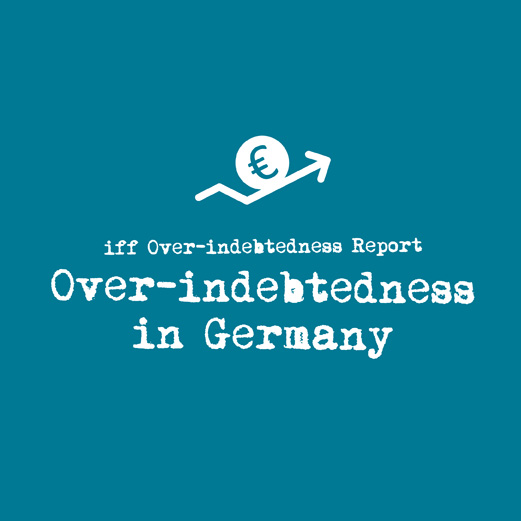
iff Over-indebtedness Report
Abstract 2022
Abstract 2020
Abstract 2019
Abstract 2018
Abstract 2017
Abstract 2016
Full Reports in German
iff-Discussion-Paper 2020/4
Swati M. Dhawan: Understanding financial literacy
among refugees in Germany
This paper will explore the role of and need for efforts to improve the financial literacy of refugees in Germany. It will address attempts to help refugees better cope with their new financial responsibilities and the challenges they face as they integrate into the German economy. The paper draws upon the findings of research from 2018 conducted by the author to understand the current situation of access to financial services for refugees in Germany, their unique financial needs, and the challenges in financially including them from a demand and supply perspective. The research was based on primary qualitative interviews with refugees, key informant interviews with stakeholders involved in refugee integration, and a desk review. It showed how many of the challenges on the demand side arise due to a lack of understanding of and trust in formal financial services.
iff-Discussion-Paper 2018/2
Konstantin Kholodilin / Dirk Ulbricht: A data set of over-indebted households in Germany
This paper introduces a unique Germany-wide data set of micro-level data of more than 100,000 over-indebted persons from 1994 to 2017 to the literature. It contains postal codes and can thus be connected to other spatial data sets. It is based on the data collected by debt advisors all over Germany and covers household data such as the income, household members, education and work of the indebted. Furthermore, it informs about the number, the sums and the structure of the outstanding debts.
iff-Discussion-Paper 2017/1
Xiaojing Wang et al.: Theoretical Frameworks for investigating consumer over-indebtedness and bankruptcy risk
Debt relief systems are implemented by governments to manage the problem of over-indebtedness, however, differences in systems exist across nations. Some systems, such as that in the United States, are favourable towards the consumer and enable a quick discharge of debts through bankruptcy and a fresh start for the consumer. Other systems, such as that in Germany, are more favourable towards the creditor. They require the consumer to lock into a minimum period of debt repayments before their debts can be formally discharged through bankruptcy.




